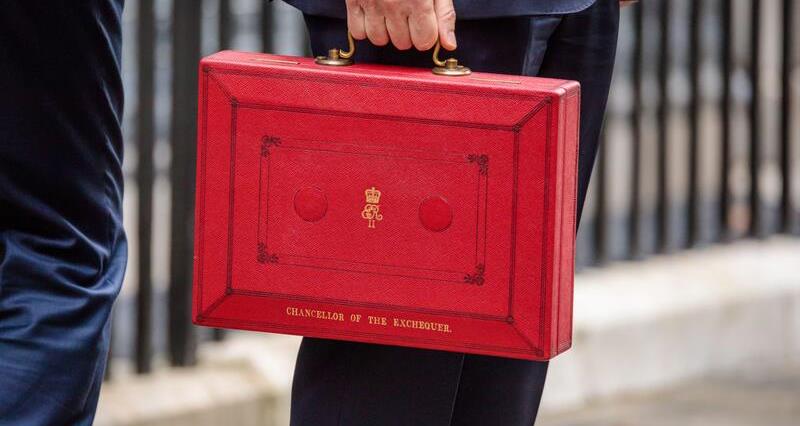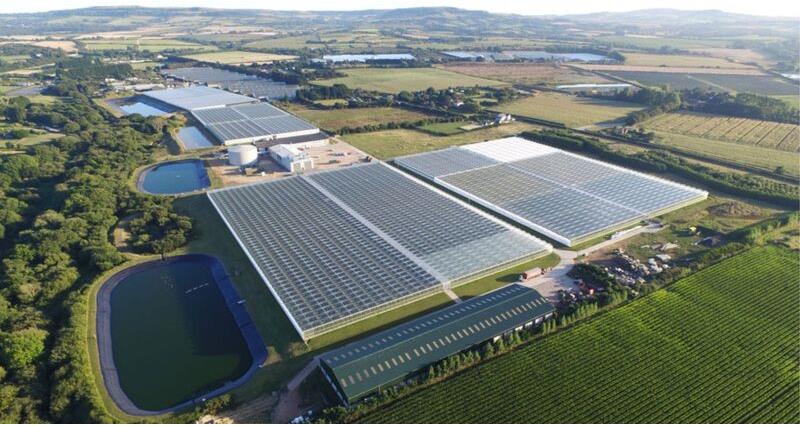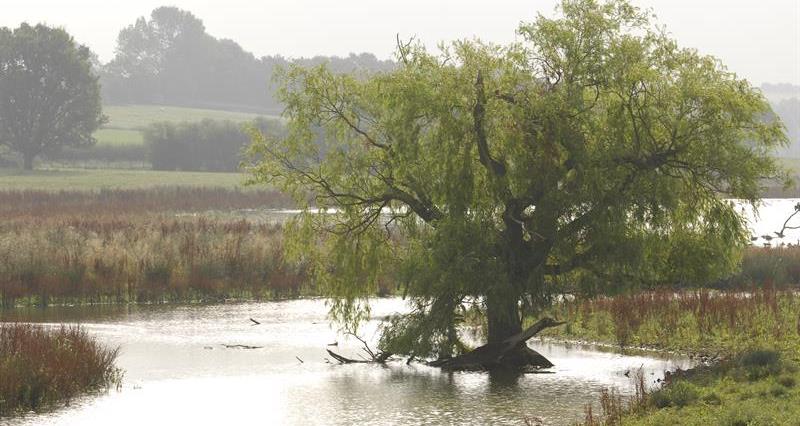NFU President Tom Bradshaw said it is “vital that our country’s food producers have the business confidence to continue producing climate-friendly, nutritious food long-term”.
Farm input costs are up 32% from 2019 with this year marking a 50% reduction in direct support payments for farmers. This, combined with more regular and severe weather events, makes for a “challenging economic backdrop” Tom said.
What are the NFU’s key asks?
Prioritise Environment Agency funding for flood defences
Following the impacts of Storms Babet and Henk, vast areas of productive farmland have been left under water resulting in huge financial stress and misery for farmers and growers.
It stems from a failure by successive governments, despite significant increases in spending, to provide sufficient budget that addresses the scale of challenges of managing watercourses and improving and maintaining our flood defences.
The NFU is concerned that the current government approach to managing flood risk does not recognise the importance of maintaining existing flood defences which, if in better condition, could better accommodate regular extreme rainfall events and allow for swifter recovery from flooding on agricultural land.
Extend IETF to the poultry sector
Last year, the government said ‘controlled environment horticulture’ would be eligible for phase three of the IETF (Industrial Energy Transformation Fund) which opened for applications at the end of January.
A long-standing NFU lobbying ask, it means that glasshouses will be eligible for a higher tier of government support targeted at high energy use industries.
However, the NFU remains extremely disappointed over the lack of support for poultry production – another sector that is energy intensive – where ongoing, soaring production costs are putting producers under immense pressure.
“Without profitability built into farm businesses to create some certainty ahead, it is very difficult for farmers and growers to invest in the future.”
NFU President Tom Bradshaw
Development of future agricultural budget
The NFU remains grateful to this government for protecting the agricultural budget in the current parliament.
While specific spending decisions beyond 2024 will be a decision for the next government, the Treasury must begin work on a multi-annual framework which values, and funds, the delivery of environmental, productivity and stability improvements to underpin a resilient and sustainable agricultural sector in the years ahead.
To that end, the NFU has commissioned the fully independent Andersons Centre to model the public funding required to deliver the government’s statutory environmental and broader policy ambitions for agriculture in England over the 2024 to 2029 period, structured around our three agricultural policy cornerstones.
As outlined in our general election manifesto, the research indicates that an annual agricultural budget for England of around £4 billion would support the delivery of a balanced agricultural policy which underpins global competitiveness.
Clarity on ELMs and Tax
The NFU has reiterated its ask for HM Treasury to remove the uncertainty over the tax treatment of agricultural land entered into environmental schemes, especially the government’s own ELMs (Environment Land Management schemes).
We gathered views from our members and responded to the consultation on APR, stating that the government must remove this uncertainty – or risk undermining the confidence in and uptake of these schemes, as well as the government’s own environmental ambitions.
Profitability must be built into businesses
In addition, the NFU is also calling for the introduction of enhanced capital allowances to incentivise investment in a range of low-carbon capital investments and a further round of the Rural England Prosperity Fund to support rural businesses.
“First and foremost, farms are businesses there to produce food for the nation,” NFU President Tom Bradshaw said, adding that “without profitability built into farm businesses to create some certainty ahead, it is very difficult for farmers and growers to invest in the future”.
“But fundamentally this is exactly what they must do to if we are to secure food production to feed people both here and for growing markets overseas.”
Tom said the budget marked an opportunity for the Chancellor “to take actions that will boost business confidence in the UK’s food and farming industry”.
“By enhancing capital allowances to incentivise green investment, ensuring the Environment Agency is properly funded to limit flooding and developing a future agricultural budget he will be able to ensure the UK farming industry is a resilient and sustainable sector for years to come.”
More from NFUonline:

Should agricultural property relief be extended? NFU response


